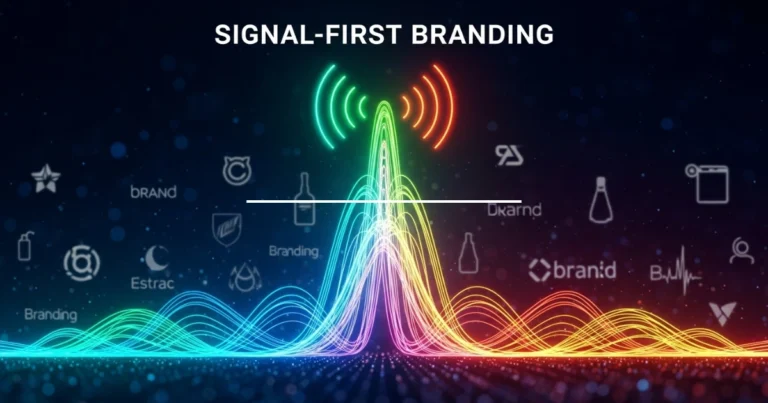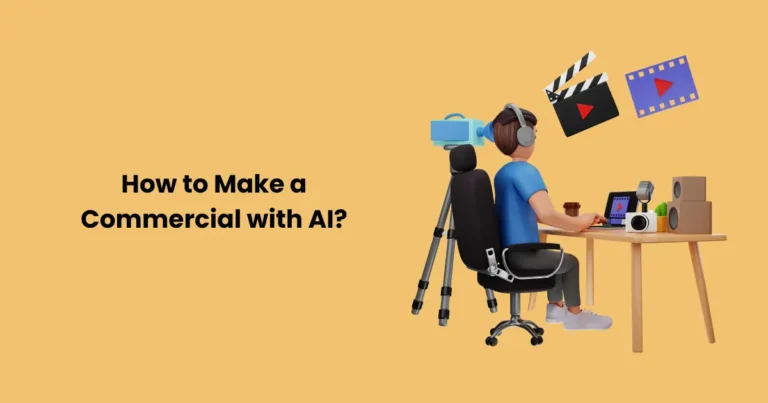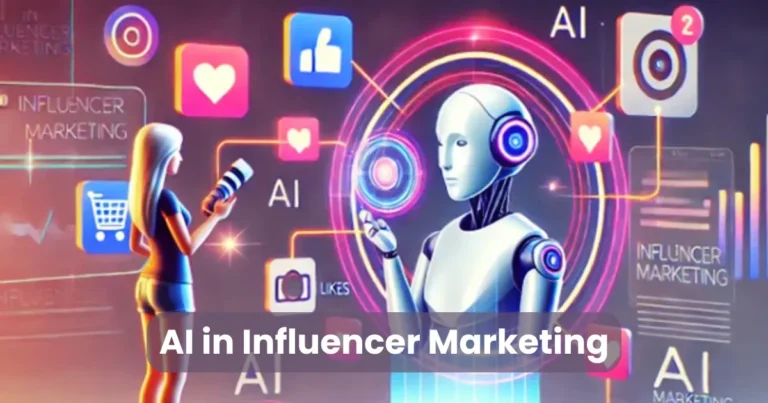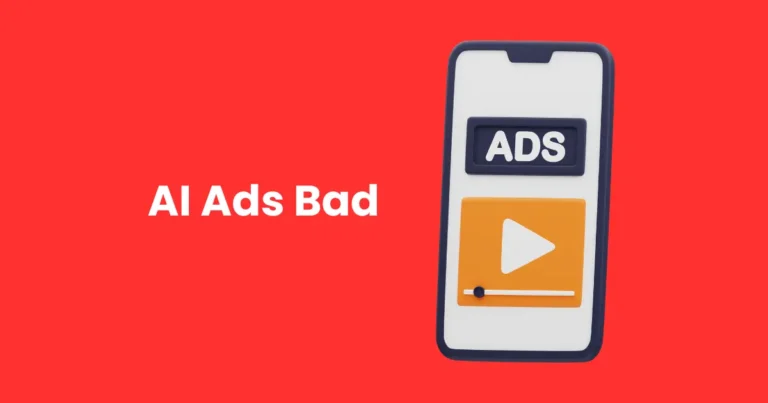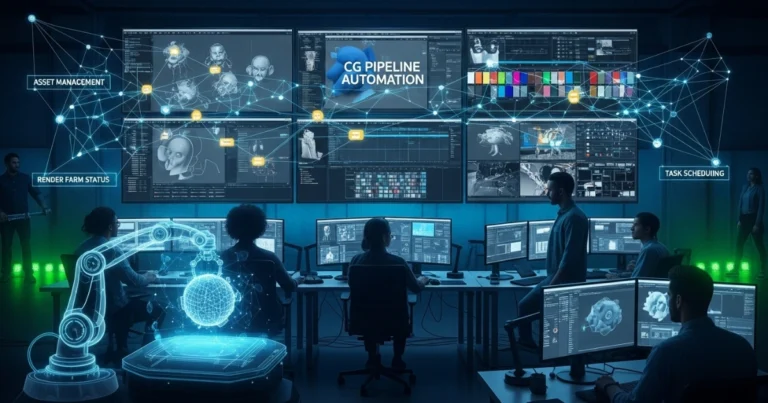Can AI Run Facebook Ads? | Generating Facebook Ads with AI
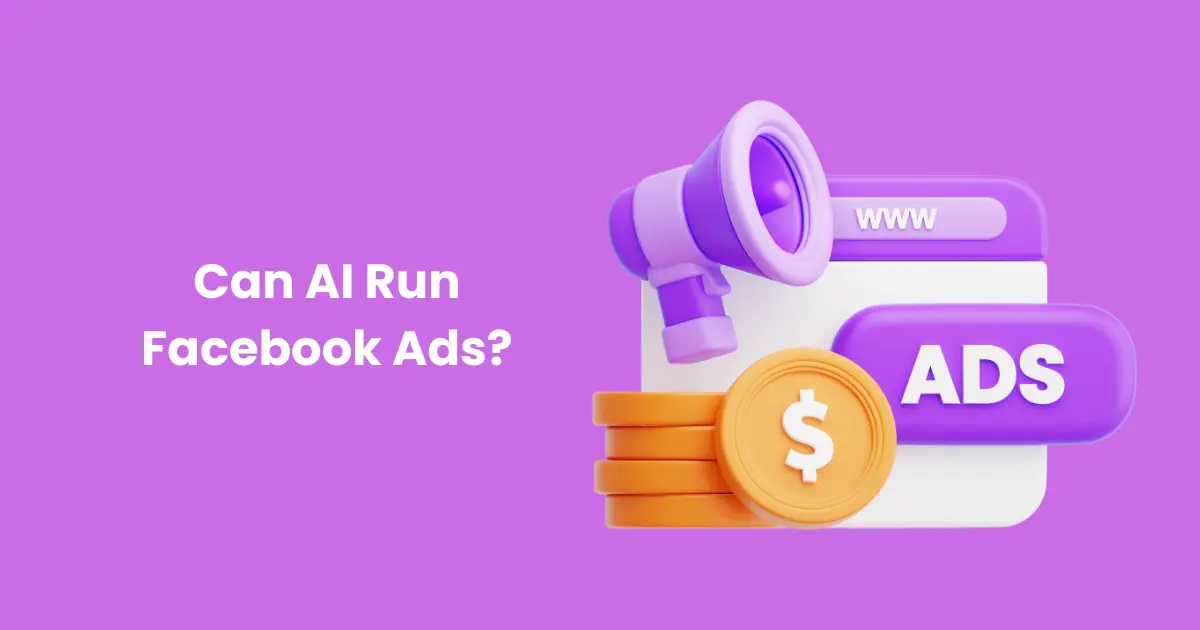
Contents
- 1 What Are Facebook Ads and How Do They Work?
- 2 Can AI Run Facebook Ads Effectively?
- 3 Benefits of Using AI for Facebook Ads
- 4 Real-World Examples of AI-Driven Facebook Ads
- 4.1 1. Coca-Cola: Personalized Campaigns with Dynamic Ads
- 4.2 2. H&M: AI-Powered Visual Search for Fashion
- 4.3 3. Adidas: AI for Customer Segmentation and Retargeting
- 4.4 4. The North Face: AI-Driven Personalized Recommendations
- 4.5 5. Starbucks: AI for Dynamic Ad Content and Location-Based Targeting
- 4.6 6. Amazon: AI-Optimized Ad Campaigns for Product Recommendations
- 4.7 7. Sephora: AI-Driven Product Demos
- 4.8 8. Uber: AI for Location-Based Ad Targeting
- 4.9 9. Netflix: AI-Powered Content Recommendations
- 4.10 10. Airbnb: AI for Dynamic Pricing and Targeting
- 4.11 Conclusion
In today’s fast-paced digital landscape, businesses are increasingly turning to technology to streamline their advertising efforts. One common question is, “Can AI run Facebook ads?” The answer is yes—AI can play a significant role in enhancing Facebook ad campaigns. By leveraging artificial intelligence, advertisers can automate processes, optimize targeting, and maximize the effectiveness of their ads. As AI continues to evolve, its ability to manage Facebook ads efficiently and intelligently is reshaping the future of digital marketing. In this article, we’ll explore how AI is used in Facebook advertising, the benefits it offers, and what challenges still remain.
What Are Facebook Ads and How Do They Work?
Facebook ads are paid promotional content that businesses use to reach a targeted audience on Facebook and its affiliated platforms, such as Instagram and Messenger. These ads appear in various formats, including image, video, carousel, and slideshow, and can be displayed in users’ News Feeds, Stories, or even in the right sidebar.
The core of Facebook advertising is its ability to offer highly customizable targeting options. Businesses can define their target audience based on a range of factors, such as:
- Demographics: Age, gender, location, occupation, and more.
- Interests: Pages liked, activities, and online behaviors.
- Behaviors: Purchase history, device usage, and travel preferences.
- Custom Audiences: Uploading a customer list or creating lookalike audiences based on existing data.
Once an ad is created, it’s placed into Facebook’s auction system, where advertisers bid to display their ads to specific groups. Facebook uses its algorithm to determine which ad to show based on factors like the bid amount, ad relevance, and user engagement. As users interact with the ads (by liking, commenting, or clicking), Facebook’s algorithm continuously optimizes the delivery to ensure the most relevant audience sees the ad.
In short, Facebook ads work by combining detailed targeting with machine learning algorithms that deliver content to the right people, at the right time, with the right message. This method of precision-driven advertising makes Facebook one of the most powerful platforms for businesses looking to grow their online presence.
Can AI Run Facebook Ads Effectively?
The question of whether AI can run Facebook ads effectively has become a critical topic for marketers looking to enhance the performance of their advertising campaigns. With the rapid advancements in artificial intelligence, businesses are increasingly turning to AI for automating, optimizing, and managing their Facebook ads. AI can indeed run Facebook ads effectively, but its success depends on how it is integrated into the campaign strategy and the specific tasks it is assigned. Let’s explore how AI can handle Facebook ads and why it can be an invaluable asset for advertisers.

Automated Ad Campaign Management
One of the primary ways AI can run Facebook ads is through automation. AI-powered tools can handle many aspects of ad campaign management, such as:
- Ad Creation: AI can generate variations of ads by analyzing user behavior and previous campaign performance. It can recommend creative elements like headlines, images, and copy based on what has worked best in the past, saving time and resources.
- Budget Allocation: AI can automatically optimize ad budgets by allocating more funds to high-performing ads or target segments. It analyzes which ads are generating the best results and adjusts the budget in real time to maximize return on investment (ROI).
- Scheduling and Delivery: AI can also handle the scheduling and delivery of ads based on optimal timing. By studying user activity patterns, AI ensures that ads are shown when the target audience is most active, increasing the likelihood of engagement.
AI-Powered Audience Targeting
Facebook ads are known for their powerful targeting options, and AI takes this a step further. By analyzing vast amounts of data, AI can create hyper-targeted audiences based on:
- User Interests and Behavior: AI identifies specific interests and behaviors from Facebook users, such as the pages they like, posts they engage with, or content they share. This allows AI to narrow down the audience to the most relevant individuals.
- Lookalike Audiences: Using machine learning, AI can identify users who resemble an existing customer base. By creating lookalike audiences, businesses can reach potential customers who are more likely to convert, making the ad campaigns more efficient.
- Dynamic Audience Adjustments: AI continuously monitors user interaction with ads and adjusts targeting based on real-time feedback. For example, if an ad is performing well with a certain demographic, AI will prioritize this group and adjust the targeting accordingly.
Performance Optimization and Analytics
AI’s ability to analyze data and optimize performance is one of its most valuable contributions to Facebook ads. With real-time data analysis, AI can:
- Test and Optimize Creatives: AI can automatically run A/B tests on ad creatives, testing different headlines, images, and calls to action to determine which combinations perform best.
- Predict and Adjust Campaigns: AI uses historical data to predict the future success of campaigns. It can make real-time adjustments to targeting, budget, and creative elements to continuously improve ad performance.
- Advanced Analytics and Reporting: AI provides deep insights into campaign performance, allowing advertisers to understand which aspects of their campaigns are working and which need adjustment. This includes tracking engagement, conversions, and customer behavior across different stages of the sales funnel.
The Benefits of Using AI for Facebook Ads
Using AI to manage Facebook ads offers several key benefits:
- Increased Efficiency: By automating tasks like ad creation, budget allocation, and audience targeting, AI saves valuable time and resources. Marketers can focus on higher-level strategy and creative work, while AI handles the repetitive tasks.
- Better Targeting and Personalization: AI’s ability to analyze vast amounts of data leads to better audience targeting, ensuring that ads reach the right people at the right time. Personalized ads lead to higher engagement rates and improved conversion.
- Real-Time Optimization: AI’s real-time optimization ensures that ads are continuously improved based on performance. This dynamic approach allows businesses to stay ahead of competitors and make the most of their ad spend.
Challenges and Limitations of AI in Running Facebook Ads
While AI can significantly enhance Facebook advertising, there are still some challenges and limitations to consider:
- Dependence on Quality Data: AI’s performance depends on the quality and volume of data available. If the data is inaccurate or incomplete, AI may struggle to make effective decisions.
- Learning Curve: While AI tools are becoming more user-friendly, there is still a learning curve when it comes to setting up and fine-tuning AI-based ad campaigns. Advertisers may need to invest time in understanding the tools and ensuring they’re configured correctly.
- Creativity Constraints: While AI is excellent at optimizing campaigns based on data, it still lacks the creativity and intuition that human marketers bring to the table. AI might not always generate the most innovative or engaging ad content, especially for more complex campaigns.
In conclusion, AI can run Facebook ads effectively, particularly when it comes to automating tasks, optimizing targeting, and improving performance. AI tools can significantly enhance the efficiency and effectiveness of Facebook ad campaigns, allowing businesses to reach the right audience, optimize their ad spend, and drive better results. However, for maximum effectiveness, AI should be integrated thoughtfully, with human oversight to guide creative aspects and data interpretation. By leveraging AI alongside human expertise, advertisers can create more impactful and profitable Facebook ad campaigns.
Benefits of Using AI for Facebook Ads
Integrating AI into Facebook advertising campaigns offers numerous advantages, transforming how businesses approach digital marketing. By leveraging AI, companies can streamline their ad operations, improve performance, and achieve higher returns on investment (ROI). Below are the key benefits of using AI for Facebook ads:

1. Enhanced Targeting Precision
AI excels at data analysis and pattern recognition, enabling businesses to reach highly targeted audiences on Facebook. By analyzing user behaviors, interests, and engagement patterns, AI can identify the most relevant audience for each ad. This leads to more precise targeting, ensuring that the right message is delivered to the right people at the right time. With AI-powered audience segmentation, businesses can:
- Create hyper-targeted groups based on interests, demographics, and behaviors.
- Reach new potential customers through lookalike audiences, similar to existing high-converting customers.
- Continuously refine and adjust targeting based on real-time data, ensuring optimal reach and engagement.
2. Time and Cost Efficiency
AI can significantly reduce the time and resources needed to run Facebook ads. With automation capabilities, AI powered tools can handle repetitive tasks such as:
- Ad creation and testing: AI can automatically generate and test multiple variations of an ad, choosing the best-performing options.
- Budget allocation: AI adjusts ad spend dynamically, reallocating funds to high-performing ads and optimizing the ad spend for maximum impact.
- Scheduling and delivery: AI optimizes when and where ads are shown, ensuring that the ads are displayed at the most opportune moments for the target audience.
By automating these aspects, businesses can run ads more efficiently, allowing marketers to focus on strategy and creative efforts instead of managing day-to-day operations.
3. Real-Time Campaign Optimization
AI can analyze performance data in real time, providing continuous optimization for Facebook ad campaigns. As AI learns from ongoing data, it can adjust ad elements to improve engagement and conversions. Key optimization features include:
- A/B testing: AI can run multiple ad variations simultaneously, testing different creatives, headlines, and calls to action, and automatically selecting the highest-performing ones.
- Predictive insights: AI can predict which ads are likely to perform well based on historical data and trends, helping businesses allocate resources more effectively.
- Dynamic adjustments: AI can modify campaigns on the fly, adjusting targeting, bids, and creative elements to maintain optimal performance.
This constant optimization ensures that ads are always performing at their best, even as market conditions change.
4. Improved Personalization
AI allows for deep personalization of Facebook ads. By analyzing user behavior and preferences, AI can create highly personalized ad experiences that resonate with individual customers. Personalized ads are more engaging, leading to higher click-through rates and better conversion rates. AI-driven personalization features include:
- Dynamic content: AI can tailor the content of ads based on a user’s browsing history, interests, or past interactions with a brand.
- Product recommendations: AI can suggest relevant products or services to users based on their past purchases or engagement, making ads feel more relevant and personalized.
- Adaptive messaging: AI can modify the messaging in real time, adjusting the tone or offer to match the user’s current behavior or stage in the sales funnel.
Personalized ads not only increase engagement but also improve customer loyalty by offering tailored experiences that cater to each user’s needs and interests.
5. Advanced Analytics and Reporting
AI enhances the analytics capabilities of Facebook ads, providing businesses with deeper insights into ad performance and customer behavior. By processing vast amounts of data, AI can offer:
- Comprehensive reports: AI can generate detailed reports on key metrics such as impressions, clicks, conversions, and engagement rates, breaking them down by audience segment, ad type, and other relevant factors.
- Behavioral insights: AI can identify patterns in user behavior, helping businesses understand how customers interact with their ads and where they drop off in the funnel.
- Performance forecasting: With AI, businesses can forecast future ad performance based on historical data, helping them plan future campaigns more effectively.
These insights allow businesses to make data-driven decisions, optimizing their ad strategies for maximum success.
6. Scalability
As businesses grow, managing Facebook ads can become more complex. AI offers scalability by handling large volumes of data and automating tasks that would otherwise require significant manual effort. With AI, businesses can:
- Manage multiple campaigns: AI can simultaneously run multiple ad campaigns targeting different audience segments, ensuring that each campaign receives the necessary attention and optimization.
- Scale ad spend efficiently: AI can analyze which campaigns are generating the best results and scale up spending on those campaigns while minimizing spend on underperforming ones.
- Handle increasing complexity: As businesses expand, AI tools can seamlessly manage more data points, making it easier to scale advertising efforts without sacrificing performance.
AI allows businesses to scale their Facebook ads effectively, without losing control or compromising on quality.
7. Competitive Advantage
By utilizing AI in Facebook ads, businesses can gain a competitive edge in their industry. AI allows marketers to:
- Stay ahead of trends: AI analyzes emerging trends and consumer behaviors, allowing businesses to adjust their strategies before competitors do.
- Improve ad relevance: With AI’s real-time optimization and personalized targeting, businesses can deliver ads that are more relevant to users, resulting in higher engagement and better performance than their competitors.
- Increase ad ROI: AI ensures that ad budgets are spent efficiently, maximizing ROI and allowing businesses to allocate resources more effectively than their competitors.
In an increasingly competitive digital landscape, leveraging AI for Facebook ads can make the difference between staying ahead and falling behind.
Real-World Examples of AI-Driven Facebook Ads
AI-driven Facebook ads have revolutionized the way businesses approach digital marketing. Companies across various industries are leveraging AI to optimize their ad campaigns, achieve better targeting, and drive more personalized experiences for their customers. Below are several real-world examples of how businesses have successfully implemented AI in their Facebook advertising strategies:

1. Coca-Cola: Personalized Campaigns with Dynamic Ads
Coca-Cola used AI-driven dynamic ads to target specific customer segments based on their preferences and behavior. The brand utilized AI to tailor its ad content, displaying different messages or offers to users depending on their interests, location, and purchase history. For instance, the company targeted users who had previously interacted with its website or shown interest in specific products, offering personalized promotions that resonated with the individual user.
This AI-powered personalization not only improved user engagement but also led to increased sales and higher ROI for the campaign.
2. H&M: AI-Powered Visual Search for Fashion
Fashion retailer H&M has implemented AI-powered Facebook ads to enhance the shopping experience for its customers. Using AI-driven visual search technology, H&M allows users to take a photo of an outfit or product and instantly find similar items available for purchase. When users engage with these visual search ads, H&M’s AI algorithms suggest products that match their preferences and style.
This highly personalized approach, powered by AI, has led to higher conversion rates as customers are shown exactly what they’re interested in, making the shopping experience more seamless and intuitive.
3. Adidas: AI for Customer Segmentation and Retargeting
Adidas used AI for customer segmentation and retargeting in their Facebook ads, significantly enhancing their ad performance. By leveraging AI’s ability to analyze customer behavior and engagement data, Adidas created specific customer profiles based on purchase history, interaction with previous ads, and social media behavior.
Through AI-powered segmentation, Adidas was able to run hyper-targeted Facebook ads, retargeting users who had previously shown interest in specific products or categories. This allowed the company to deliver ads to customers with high conversion potential, leading to better ad performance and an increase in sales.
4. The North Face: AI-Driven Personalized Recommendations
The North Face, an outdoor apparel brand, utilized AI to offer personalized recommendations through Facebook ads. By using IBM’s Watson AI, The North Face’s Facebook ads analyzed users’ preferences based on data such as location, past purchases, and weather conditions.
With this information, the brand could tailor ad content to match the specific needs of the user, recommending the best outdoor gear based on the weather forecast and the customer’s activity preferences. This highly personalized experience, powered by AI, drove more relevant ad interactions and higher customer satisfaction.
5. Starbucks: AI for Dynamic Ad Content and Location-Based Targeting
Starbucks used AI-driven Facebook ads for dynamic content delivery and location-based targeting. The coffee giant utilized machine learning algorithms to analyze users’ location data, preferences, and browsing behavior. Based on this analysis, Starbucks served personalized offers, such as discounts on a user’s favorite drink or a promotion for a nearby store.
AI allowed Starbucks to dynamically adjust the content of each ad to ensure it was relevant to the user’s immediate environment and personal tastes. The targeted, personalized approach resulted in higher engagement rates and a boost in store visits, demonstrating the effectiveness of AI in delivering tailored advertising experiences.
6. Amazon: AI-Optimized Ad Campaigns for Product Recommendations
Amazon, the e-commerce giant, has long been at the forefront of AI-powered advertising. For their Facebook ads, Amazon leverages machine learning algorithms to provide personalized product recommendations based on a user’s browsing history, previous purchases, and wishlist items.
For example, if a user browses a particular category, such as electronics, AI algorithms will create Facebook ads showing related or complementary products. Amazon’s use of AI ensures that users are shown the most relevant products, increasing the likelihood of clicks and conversions. By using AI to optimize the ad content, Amazon achieves higher ROI on its advertising spend and ensures that its ads resonate with its audience.
7. Sephora: AI-Driven Product Demos
Sephora, the global cosmetics retailer, has integrated AI into its Facebook ads to showcase personalized product demos. Using AI, Sephora analyzes user data such as skin tone, preferences, and previous purchases to deliver targeted ads featuring product demos or tutorials that are most relevant to the individual.
For example, if a user interacts with a Facebook ad about skincare, the AI-powered system may show a personalized tutorial on how to use specific products for the user’s skin type. This type of dynamic, personalized content increases the chances of customer engagement and conversion, leading to a more effective Facebook ad campaign.
8. Uber: AI for Location-Based Ad Targeting
Uber has used AI to drive more effective Facebook ads by targeting users based on their location. AI algorithms analyze user data to determine when and where they are most likely to need a ride, sending location-specific ads to prompt a booking.
For instance, Uber may display an ad offering a discount for rides to or from airports for customers traveling at specific times. By leveraging AI to target users with relevant offers based on location and timing, Uber improves the likelihood of conversions and increases its market share.
9. Netflix: AI-Powered Content Recommendations
Netflix, known for its personalized content recommendations, also utilizes AI for its Facebook advertising campaigns. AI-driven Facebook ads for Netflix are designed to recommend movies or TV shows based on a user’s viewing history or genre preferences.
Using machine learning, Netflix can show users Facebook ads promoting content they’re likely to enjoy, improving engagement and user acquisition. This type of personalization, powered by AI, helps Netflix drive higher subscriptions and keep viewers engaged with the platform.
10. Airbnb: AI for Dynamic Pricing and Targeting
Airbnb uses AI in its Facebook ad campaigns to display relevant properties to potential customers based on their browsing behavior and preferences. By utilizing machine learning algorithms, Airbnb can predict the type of accommodations a user might be interested in based on factors such as previous searches, booking history, and location.
In addition to personalized targeting, Airbnb also uses AI for dynamic pricing. Ads can be tailored to show different property prices depending on the user’s budget and past behavior. This approach increases the relevance of the ads and drives higher conversions, making Airbnb’s AI-powered Facebook ads more effective.
Conclusion
In conclusion, the future of Facebook advertising is undeniably intertwined with the rise of AI. As AI continues to evolve, its ability to optimize and personalize ads will transform the way businesses engage with their audience. From predictive analytics and hyper-targeted advertising to fully automated ad creation and real-time campaign optimization, AI is positioned to make Facebook ads more effective, efficient, and relevant than ever before. With AI’s capabilities, businesses can not only improve ad performance but also ensure better use of their advertising budgets, creating a more streamlined and impactful strategy.
For businesses looking to get the answer of the question “Can AI run Facebook ads?” must know that to stay ahead in the competitive digital landscape, incorporating AI into their Facebook advertising strategies is no longer optional but essential. By leveraging AI-driven tools and technologies, businesses can gain deeper insights into consumer behavior, improve targeting precision, and drive higher conversion rates. As AI continues to shape the future of digital marketing, those who embrace its power in Facebook ads will be well-positioned to reap the benefits of enhanced engagement and increased ROI.

